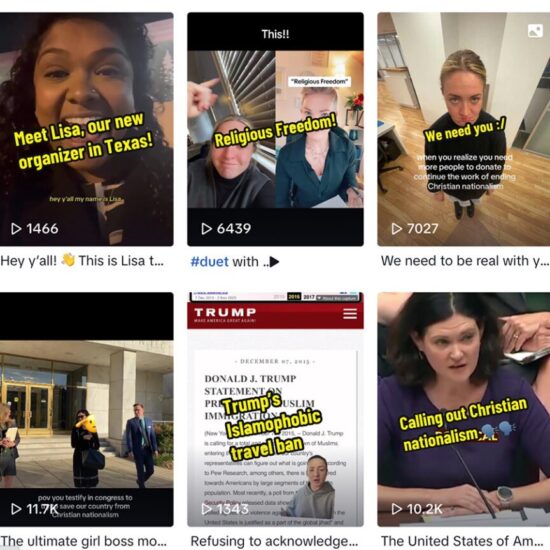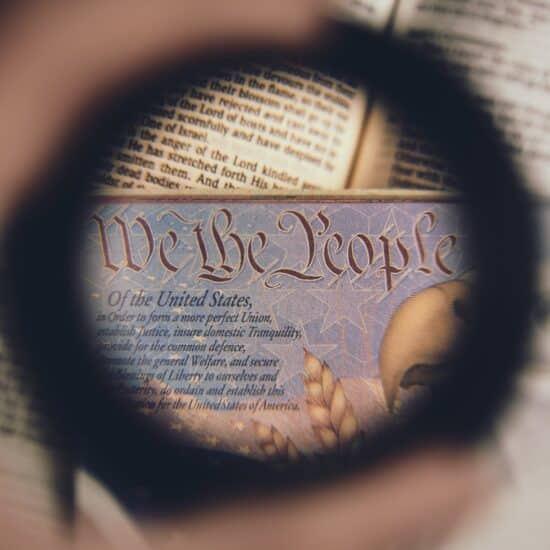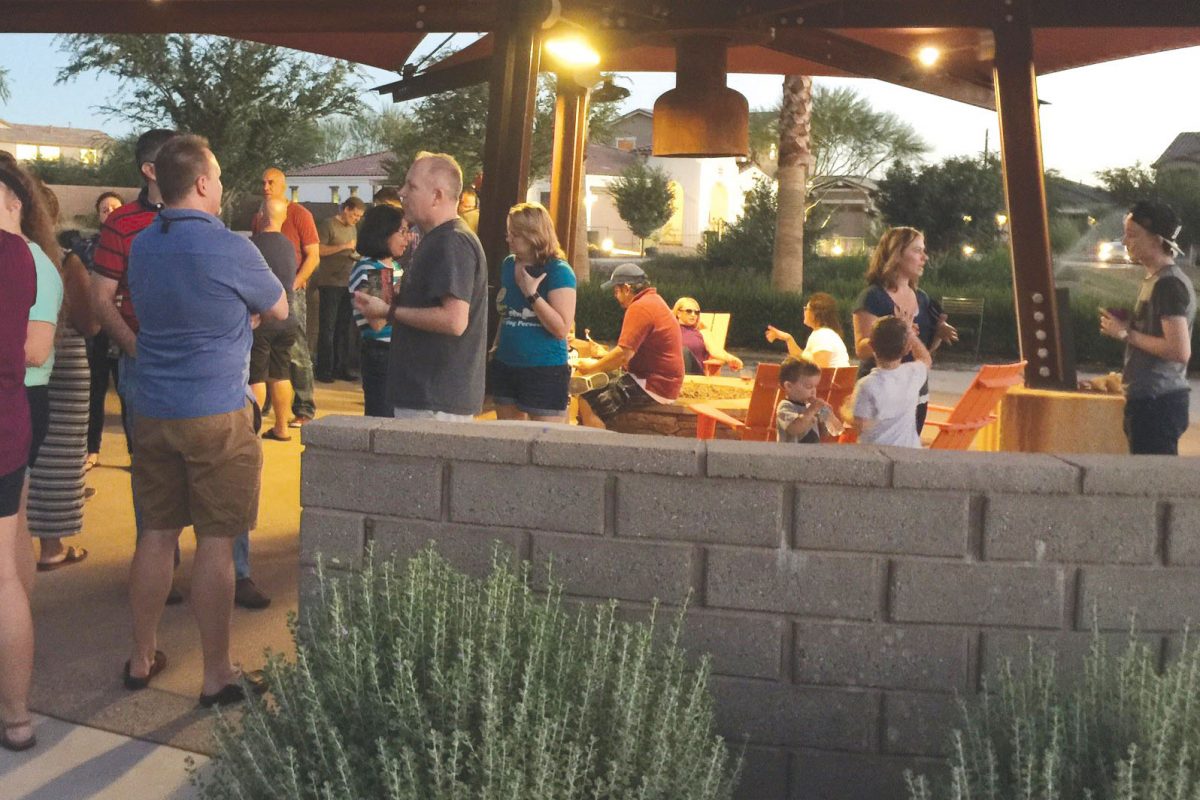
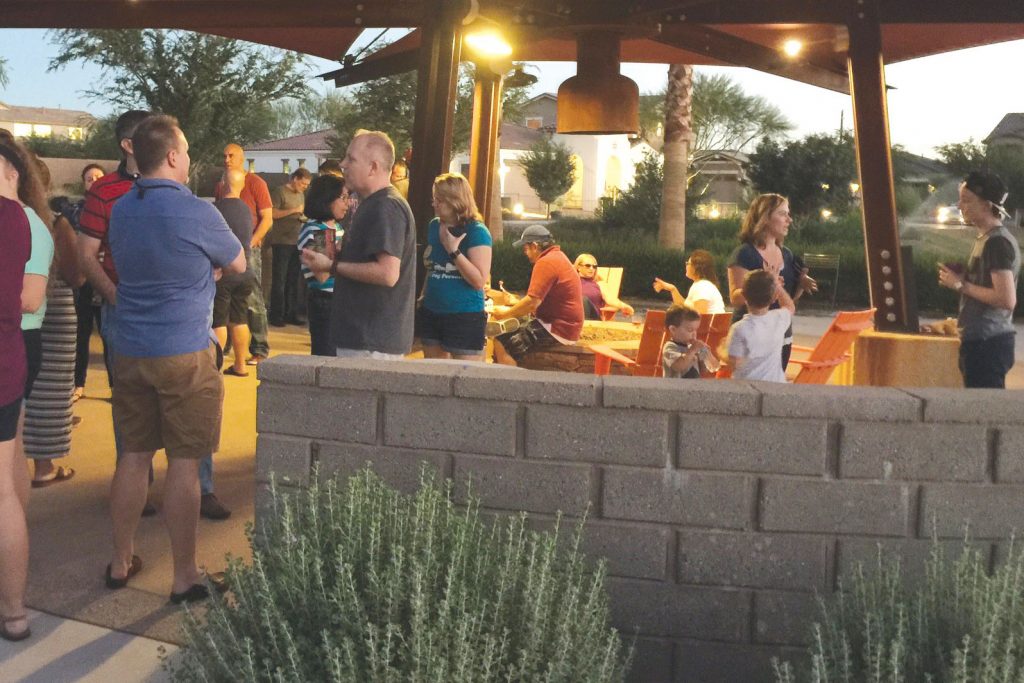
Building on their Facebook contacts, Ali and Whitney Clayton organize a block party for their neighborhood, assisted by a mission team from First Baptist Church in Mt. Juliet, Tenn. Photo by Whitney Clayton
MESA, Ariz. (BP) — Everyone craves connections — a truth that Living Stone Community Church has embraced by using Facebook to minister to their community.
Facebook can be an important tool in getting to know neighbors and pointing them to Christ, said Ali Clayton, wife of church planter Whitney Clayton.
“We mainly use social media to get a pulse on our community,” she said. “People will put what they care about, what they’re going through, how they’re hurting on Facebook. So we’ve used it to connect personally to people.”
Sometimes, Facebook opens up opportunities for ministry.
Her husband met a man in their area of Mesa, Ariz., and made it a point to add him as a friend on Facebook. Later, he learned through Facebook that the man was going through some traumatic events — a death in the family and a car accident. The Claytons were able to take the family a meal, and as Whitney helped the man process his grief, he was able to share the Gospel on three different occasions.
“I don’t know that [Whitney] would have known about all that was going on in that guy’s life had he not been friends with him on Facebook,” Ali said.
And Facebook can help start new relationships. Church members have used neighborhood pages and interest-based clubs on Facebook, such as fitness groups or book clubs, to meet people.
Ali joined a local mom’s group through Facebook when her family first moved to the area about three years ago. She built friendships during their weekly gatherings while their children played together and became especially close to one of the women in the group.
One day, the woman told Ali that her father had died, and her son was asking questions about heaven that she wasn’t prepared to answer. Knowing that Ali was a Christian, she asked if she could attend church with her. The woman subsequently became a follower of Christ and has remained active in their church.
Of course, using Facebook is not always a positive experience, with its potential to bring out some of the worst aspects of a person’s character, like narcissism, deception and jealousy.
Rather than using it as a platform for self-importance or broadcasting one’s feelings and opinions, Ali said, “I think that as believers on mission for God, Facebook can be used best when we have a posture of listening, and hearing from the lost people in our lives.”
Don’t just listen and be a “passive observer,” she counseled. If someone is struggling, reach out and offer Christ’s love to the person in need.
Ali said church members are always ready to deliver meals; whenever they hear about a family with a new baby, a death in the family or another life event, they are willing to step in and serve.
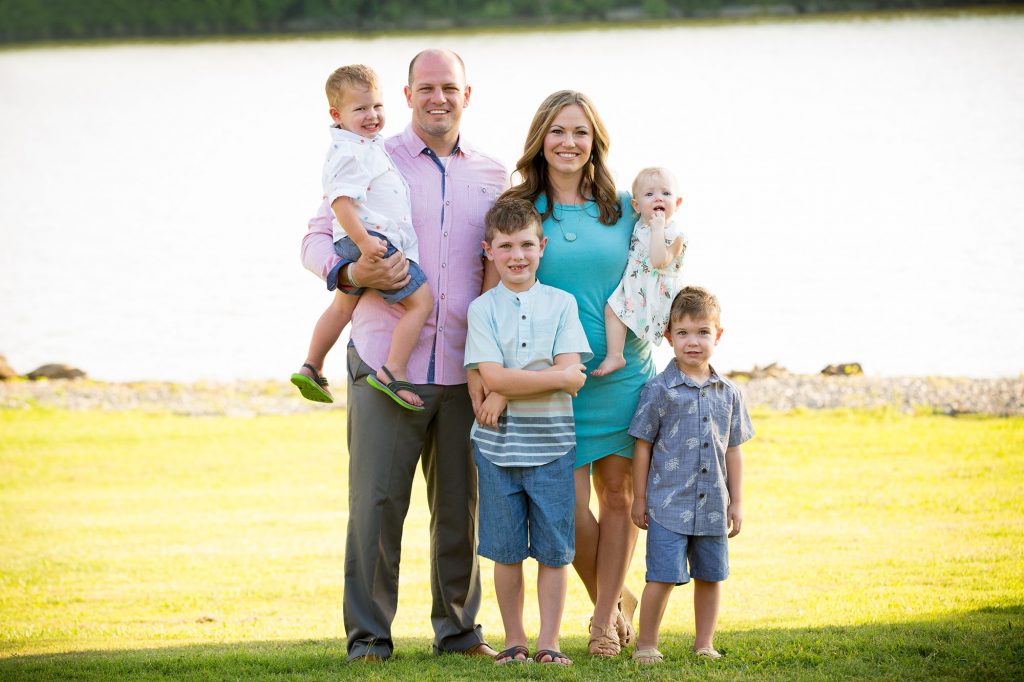
Whitney and Ali Clayton, with their four children, reach out to their community through Facebook, a weekly dinner for neighbors and a community Bible study. Photo courtesy of Ali Clayton
The Claytons make it a priority to open their home in order to build community with their neighbors and care for them. They host a weekly dinner that they regularly invite neighbors to attend. They also host a community Bible study open to anyone, which began after a suggestion on their neighborhood’s Facebook group.
Maintaining a strong walk with the Lord is essential when ministering through hospitality, Ali said.
“I have four young kids — the oldest is 7 — so even keeping our house picked up and thinking about feeding our own family can be overwhelming at times,” she said.
“To think of inviting other people into that on a regular basis can be draining if I’m not connected to the Lord and really having Him fill me, so I can continue to pour out.”
Usually when a church is looking to establish a Facebook presence, or build up their existing presence, the advice centers around a few best practices: Maintain a page with up-to-date information. Post content frequently that informs, inspires and encourages people in their walk with Christ. Promote major church events.
Yet Facebook has even more to offer to individuals interested in connecting more deeply with the people around them.
A good way to start making those connections, Ali said, is to see if your neighborhood has a Facebook group or page already established. If it does, join. If it doesn’t, start one. But don’t let your involvement stop there; keep in contact with the people in your community and if someone is in need, try to meet that need.
“I think we are all craving meaningful, deep relationships,” Ali said. “Taking [Facebook connections] a step further and meeting those people in person, and becoming friends with your neighbors, is the next step to bringing them into the family of God.”


